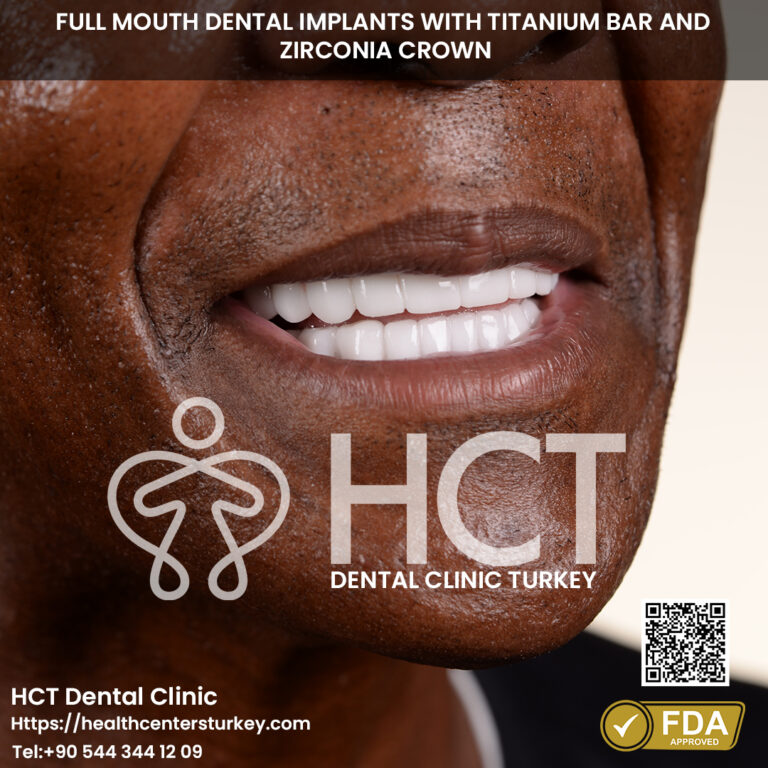Comprehensive Dental Packages Featuring Cosmetic Options

Dental implants have turn into a focal point in fashionable dentistry, offering a dependable solution for these facing tooth loss. Among the multiple benefits they provide, one vital side worth contemplating is their impact on adjacent teeth. Understanding how dental implants have an result on surrounding teeth aids in making informed choices about oral health.
When a tooth is lost, neighboring teeth can easily shift towards the area left behind. This motion can result in misalignment, which compromises the overall chew and performance of the mouth. Dental implants mimic natural tooth roots, thereby maintaining the position of adjacent teeth.
Explore the Latest Dental Technologies Available in Turkey
The stability supplied by an implant is crucial, because it helps in preserving not simply the physical alignment but in addition the structural integrity of the jawbone. When a tooth is missing, the underlying bone can begin to deteriorate because of lack of stimulation. An implant exerts stress on the bone during chewing, just like a natural tooth, which promotes bone health.
In some circumstances, a bridge or partial denture may be thought-about as an alternative choice to implants. While these options might restore some performance, they can place additional stress on neighboring teeth. Bridges often require submitting down the surrounding teeth to accommodate the anchors, thereby affecting their health over time. Dental implants, then again, don't alter current teeth, making them a extra conservative selection.
Find Your Path to a Beautiful Smile with High-Quality Dental Care
Hygiene becomes one other important factor when considering adjacent teeth within the context of implants. With dental implants, the individual can maintain a daily hygiene routine much like natural teeth. Flossing and brushing across the implant are straightforward, making certain that the gum tissue stays wholesome and minimizing the risk of gum disease that would adversely have an result on adjacent teeth.
Moreover, the supplies utilized in dental implants are biocompatible. This means they are designed to integrate well with the body, decreasing the probabilities of an opposed response. This attribute not solely makes the implant safe but also protects close by teeth from potential points that might come up because of contamination or infection.
In terms of aesthetics, dental implants offer a natural look and feel, closely resembling original teeth. Adjacent teeth benefit from this aesthetic appeal as well. When an implant is placed, the surrounding gum tissue can be shaped to mimic natural contours, thereby enhancing the overall appearance of the smile. This aesthetic factor can encourage individuals to invest in their oral care routines, benefiting both the implants and adjacent teeth in the long run.
Quick Treatment Options for On-the-Go Patients
Another concern is the potential for gum disease, which can have an effect on the health of adjacent teeth. Gum disease can occur when plaque builds up around teeth and implants. Regular dental visits and appropriate oral hygiene can mitigate this concern. The presence of implants can also serve as a motivator for higher dental hygiene practices, as people turn into extra aware of sustaining their general mouth health.
Studies have shown that dental implants can contribute to a significant improvement in quality of life. Patients often expertise elevated confidence and are much less hesitant to smile or have interaction in social interactions. A wholesome and well-maintained smile indirectly promotes better look after adjacent teeth, as individuals tend to turn into extra conscious of their general oral hygiene.
One often-overlooked aspect is the psychological impression of dental implants on sufferers. Knowing that implants provide long-term options can ease the anxiety associated with tooth loss. With fewer worries about future tooth shifts, sufferers are extra probably to invest effort and time into caring for his or her teeth, which includes adjacent teeth.
In conclusion, dental implants function greater than just a resolution for missing teeth; they play a pivotal role in sustaining the health and integrity of adjacent teeth. From preventing misalignment to promoting gum health and enhancing aesthetics, the advantages are manifold. By opting for implants, people cannot only restore performance but in addition foster a healthier oral setting for surrounding teeth. The psychological and aesthetic benefits additional contribute to an general enhanced quality of life.
Tailored Oral Health Strategies to Meet Your Needs
In the long term, understanding how dental implants affect adjacent teeth can guide people in making empowered choices relating to their dental health. The integration of these implants into the mouth acts as a stabilizing pressure, safeguarding both the physical alignment and performance of neighboring teeth, while selling a long-lasting, healthy smile.
- Dental implants usually do not exert strain on adjacent teeth, sustaining their integrity and decreasing the chance of shifting or misalignment.
- The placement of an implant often encourages higher oral hygiene habits, positively influencing the health of adjacent teeth through improved cleaning practices.
Enjoy Luxury Dental Care in Turkey at Competitive Prices
- In some circumstances, dental implants can stimulate the encompassing bone, which helps protect the natural teeth's position and general dental structure.

- The gap left by missing teeth can lead to bone loss; dental implants can prevent this, thereby defending adjacent teeth from potential problems.
- Trustworthy Smile Alignment Solutions available in Turkey
Maximize Value on Dental Treatments in Turkey
- By restoring the perform of a missing tooth, implants help distribute chunk forces evenly, decreasing wear and stress on neighboring teeth.

- Properly positioned dental implants can act as a assist structure, stopping undesirable motion of adjacent teeth resulting from tooth loss.
- The presence of an implant might enhance the aesthetic appearance of surrounding teeth by filling in gaps and supporting facial structure.
Achieve Your Ideal Smile with Expert Care in Turkey's Dental Clinics
- Dental implants eliminate the need for adjacent teeth alteration, in contrast to bridges, which require reshaping the nearby teeth for support.
- Implants additionally cut back the chance of gum disease in comparability with different tooth replacement choices, indirectly benefiting adjacent teeth by promoting overall oral health.
Enhance Your Smile with Dental Implants in Turkey.
- Long-term success of dental implants is linked to the health of surrounding teeth, emphasizing the importance of regular dental check-ups and maintenance.
How do dental implants affect adjacent teeth?
Personalized Oral Health Strategies to Fit Your Lifestyle
What are dental implants and how do they work with adjacent teeth?undefinedDental implants are artificial tooth roots placed into the jawbone to assist replacement teeth. They don’t affect adjacent teeth immediately, as they are independent constructions. Instead, they may implant prices in turkey help keep the integrity of surrounding teeth by preventing bone loss.
Can dental implants trigger harm to adjacent teeth?undefinedIf placed correctly, dental implants mustn't hurt adjacent teeth. However, improper placement can lead to points like misalignment or strain, emphasizing the significance of selecting an experienced dental professional.
Will dental implants promote bone development around adjacent teeth?undefinedYes, dental implants help stimulate the jawbone, which might encourage bone progress. This can benefit adjacent teeth by sustaining bone density and stability within the area.
Learn About the Latest Dental Technologies Available in Turkey
Should I worry about gum disease affecting adjacent teeth after getting an implant?undefinedGood oral hygiene is crucial after getting an implant. Gum disease can nonetheless have an effect on adjacent teeth, but a correctly maintained implant does not increase that risk. Regular dental visits may help monitor and keep gum health.
What happens to adjacent teeth if I lose a dental implant?undefinedIf a dental implant fails or is misplaced, adjacent teeth might shift due to adjustments in chew alignment and support structure. This may lead to misalignment or extra tooth loss if not addressed.
Are there any particular care requirements for adjacent teeth after getting implants?undefinedMaintaining good oral hygiene practices, together with common brushing, flossing, and dental check-ups, is important for both dental implants and adjacent teeth to forestall decay and gum disease.
Most Recommended Dental Treatments for Local Patients in Turkey
Do dental implants assist support adjacent teeth when chewing?undefinedAbsolutely. Implants can enhance overall chunk perform, which might alleviate stress on adjacent teeth during chewing. This can result in better distribution of forces, selling oral health.
How can I prevent problems with adjacent teeth and implants?undefinedConsistent dental care, together with professional cleanings and examinations, common brushing and flossing, and following your dentist’s find out here aftercare instructions, are key to stopping complications.
Can adjacent teeth transfer if I have a dental implant?undefinedAdjacent teeth could move if they are not well-supported, particularly after tooth loss. A dental implant helps preserve the structure, decreasing the chance of shifting teeth.